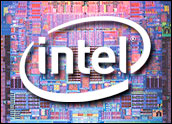
European regulatory authorities have taken a step toward bringing allegations that Intel is violating antitrustlaw closer to a resolution — and the company’s probable prosecution.
Officials investigating claims against the chip maker reportedly havepresented their evidence to an internal panel of so-called “devil’s advocates,” a step taken before formal legal proceedings are launched.
If charges arelevied, the competition commissioner will issue astatement of objections to the company.Intel’s European antitrust woes began several yearsago in Germany, with allegations that retailers were being pressured intostocking only PCs that were equipped with Intel chips. Complaints also surfaced over Intel’s manufacturer rebate program.
Navigating the Rebate Issue
Surprisingly, rebates can be a gray area inanticompetition law, even in the United States, commented TylerBaker, a partner with Fenwick & West in Silicon Valley.
“I don’t know all of the details about the rebatesystems Intel uses, but I can tell you it is a verymuch unresolved question in this country,” he told the E-Commerce Times.
Many U.S. courts are hesitant to find that rebatesare illegal, because they are a form of pricecompetition — which antitrust laws encourage, heexplained.
However, pricing can subtly morphinto a de facto exclusive dealer’s arrangement when companies are required to buy large quantities of product to qualify for a manufacturer’s rebate.
“Some courts have found that rebates can be set up orstructured to be more than just price competition,”Baker said.
Following Microsoft
Intel may be poised to head down the same path in Europe that Microsoft has been on for the last several years. Microsoft’s antitrust legalproblems extend into many different areas,Baker noted, so the analogy is not a perfect one. Itis, however, close enough.
“Intel is a very dominant company, and dominantcompanies are sometimes judged by different standards.That is true both [in the U.S.] and in Europe,” he pointed out.
Intel mightfind, as Microsoft did, that business practices are not judged in isolation. While it might be unclearwhether one activity could be considered anantitrust violation, the combination of several ambiguous businesspractices can add up to antitrust concerns in the eyes of regulators.
Whether charges will be filed is still uncertain, and it is too early toextrapolate any lessons from the latest events, Baker noted.
“If the ECbrings a case, then other companies will have to paygreater attention, of course, to these issues,” hesaid.
On the other hand, the European Commission maydecide not to press charges. After all, the panel of devil’sadvocates was established precisely to ensure that poorlyinvestigated cases do not enter the legal system.”That will also send a message,” Baker said.















































Social Media
See all Social Media